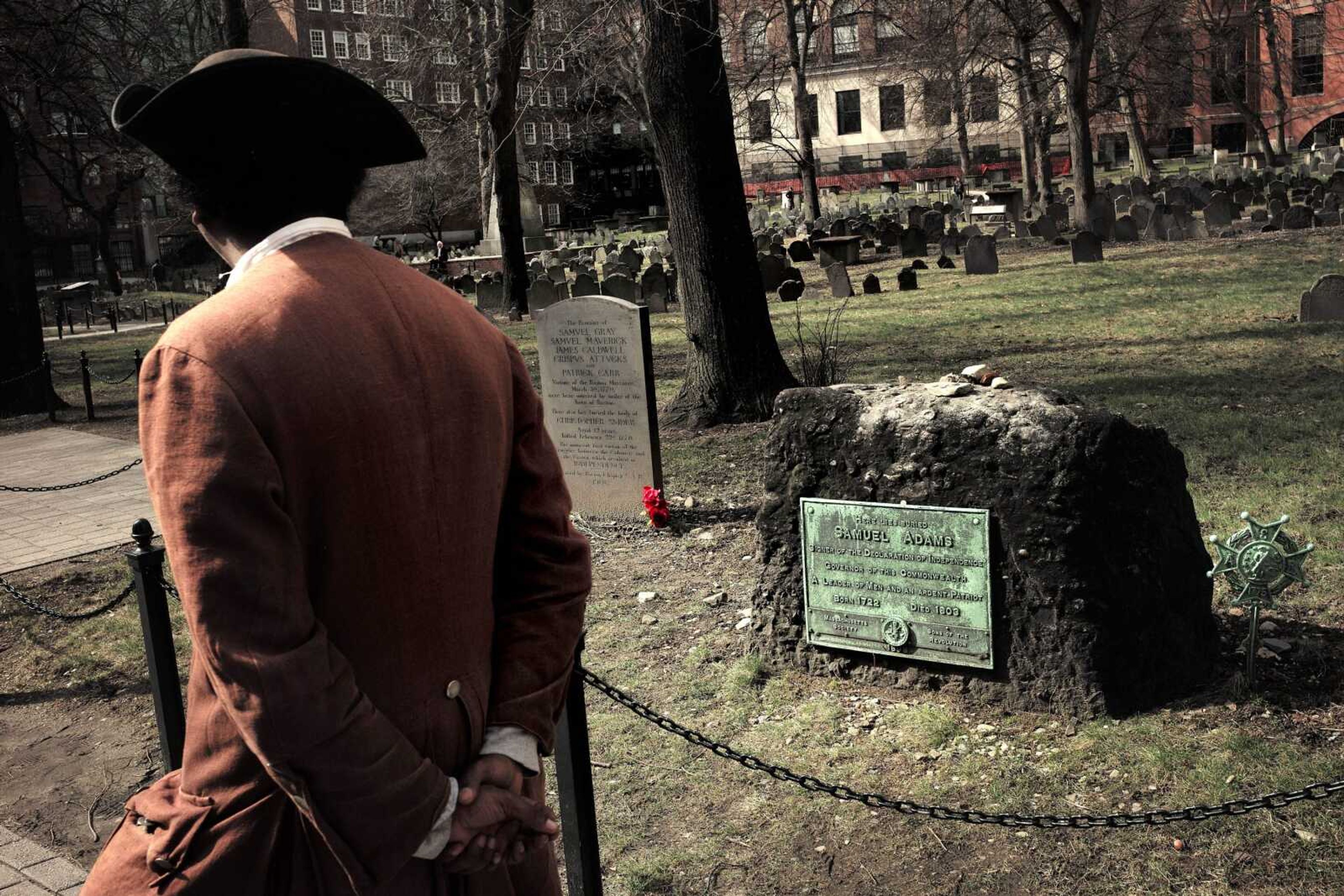Tributes, protest mark 250th anniversary of Boston Massacre
BOSTON -- Solemn ceremonies and a protest marked the 250th anniversary Thursday of the massacre in Boston that helped spark the Revolutionary War. A wreath was laid at the grave of the five victims of the fateful conflict, and colonial re-enactors fired their muskets in salute during a morning tribute organized by the Daughters of the American Revolution...
BOSTON -- Solemn ceremonies and a protest marked the 250th anniversary Thursday of the massacre in Boston that helped spark the Revolutionary War.
A wreath was laid at the grave of the five victims of the fateful conflict, and colonial re-enactors fired their muskets in salute during a morning tribute organized by the Daughters of the American Revolution.
The event in downtown Boston's Old Granary Burial Ground was the first of a number expected to take place across the country in the coming years to mark seminal events in the war for independence.
"We will not forget the sacrifices that you made, becoming martyrs for liberty," said Laura Kessler, of the Daughters of the American Revolution, after she'd read out the names of the victims.
Hours later, black and Native American activists staged a "death procession" from the massacre site to Faneuil Hall to protest "persistent racism" in Boston and elsewhere.
Organizers, which included the North American Indian Center of Boston and the New Democracy Coalition, renewed calls for the hall to be renamed in honor of Crispus Attucks, a man of African American and Native American descent who was the first person killed in the Boston Massacre.
Attucks is often cited as the first casualty of the American Revolution, and Faneuil Hall, where prominent Bostonians debated independence from Britain, was built by a wealthy merchant and slave trader.
They also called for changing the state flag and seal, which depict a Native American man, a colonist's arm brandishing a sword and a Latin phrase that reads, in part, "By the sword we seek peace."
Gov. Charlie Baker, Boston Mayor Marty Walsh, the president of the Boston branch of the NAACP and other dignitaries then spoke at an evening ceremony at the historic Old South Meeting House near the massacre site.
The Boston Massacre took place on March 5, 1770, as a mob attacked a British soldier in front of the downtown Customs House on a snowy evening.
The solider was among roughly 4,000 troops occupying Boston in order to enforce new tax laws imposed on the American colonies, according to the Daughters of the American Revolution.
British soldiers opened fire on the crowd, killing Attucks and four other men: Samuel Gray, James Caldwell, Samuel Maverick and Patrick Carr.
Two of the soldiers were eventually found guilty and branded. The victims were posthumously hailed as heroes, with thousands turning out for their funeral procession and their burial together.
The story of the bloody street brawl, meanwhile, stoked anti-British sentiment throughout the colonies, thanks in large part to widely circulated engravings by Paul Revere depicting the British soldiers as the instigators of the conflict.
John Adams, who defended the British soldiers at their trial and later became the new nation's second president, said the massacre was when the "foundation of American independence was laid."
Four years later, irate Bostonians staged their infamous Tea Party, dumping British tea into the harbor to protest Colonial rule.
The following year, in 1775, American and British armies clashed in Lexington and Concord, Massachusetts, during the first official battles of the Revolutionary War.
Connect with the Southeast Missourian Newsroom:
For corrections to this story or other insights for the editor, click here. To submit a letter to the editor, click here. To learn about the Southeast Missourian’s AI Policy, click here.










